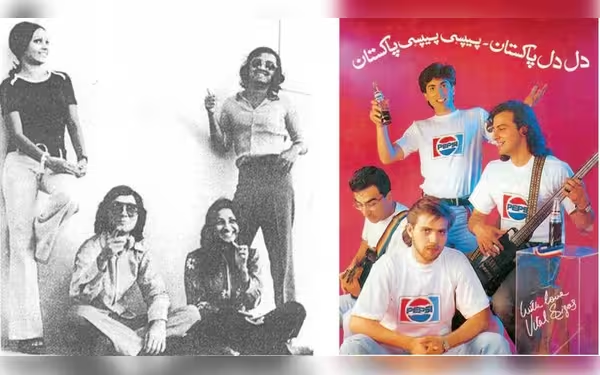Saturday, November 16, 2024 07:37 PM
Cultural Evolution in Pakistan: Breaking Societal Norms
- Cultural norms often hinder personal expression in Pakistan.
- Historical taboos are gradually fading in modern society.
- Women's education and fashion have evolved significantly.
 Image Credits: thefridaytimes
Image Credits: thefridaytimesExplore how cultural norms in Pakistan are evolving, impacting women's education, fashion, and personal expression.
The concept of culture is deeply rooted in the shared beliefs, values, and behaviors of a group of people, whether they belong to a nation or a religious community. It encompasses knowledge, customs, arts, and laws that define a group. Often, culture is tied to specific religions or geographical locations. In many societies, including Pakistan, individuals frequently find themselves constrained by cultural norms, leading to the question: "What would people think?" This phrase often serves as a barrier to personal expression and change.
One poignant example of this cultural dilemma can be found in a song from the 1957 movie "Paying Guest." In this song, a girl implores a boy to release her shawl, highlighting the societal pressure to conform to accepted norms. While she may not personally object to his actions, the fear of public judgment looms large. This scenario reflects the broader reality of Pakistani society, which is often bound by tribal, caste, and familial restrictions.
Historically, certain traditions have dictated social interactions, such as the prohibition against Syeds marrying non-Syeds. This taboo, mistakenly believed to be rooted in Islamic teachings, led many eligible women to remain single. Fortunately, as time has passed, such restrictions have begun to fade. Customs and traditions are not set in stone; they evolve, often in response to challenges or new trends.
For instance, a highly educated woman in my family defied societal expectations by marrying a non-Syed man. Initially, this decision sparked gossip and concerns about family honor, but ultimately, it led to a fulfilling and harmonious life. Similarly, the fashion choices of young men have transformed over the decades. Once ridiculed for sporting long hair and tight clothing, these styles have gradually become mainstream, illustrating how societal perceptions can shift over time.
Reflecting on the past, old photographs from cities like Peshawar reveal a stark contrast to contemporary fashion. Men once donned baggy shalwars and long kurtas, often accompanied by turbans and traditional footwear. Women, on the other hand, were less visible, typically wearing white burqas. Today, while some women still wear burqas, many have opted for shawls or chadors, indicating a shift in cultural practices.
The evolution of cultural norms is not limited to clothing. The views on women's education have also transformed dramatically. A poet like Mahir-ul-Qadri, who once opposed women's education, would be astonished to witness Pakistani women excelling in various fields today. The changes in culture over the past century are indeed striking, as evidenced by the evolution of women's fashion in the West, from the restrictive clothing of the 1920s to the more liberated styles of today.
In the realm of cinema, the portrayal of intimacy has also evolved. While kissing was once taboo in Hindi and Urdu films, it has become commonplace in many parts of the world. This shift reflects broader changes in societal attitudes towards personal expression and relationships.
One inspiring story is that of Gertrude (Trudy) Ederle, who defied societal expectations to become the first woman to swim across the English Channel. Despite facing numerous obstacles, including societal disapproval of women swimming in public, she persevered and achieved her goal. Her journey serves as a reminder that individual determination can triumph over societal constraints.
The evolution of culture is a complex process influenced by various factors, including individual choices and societal changes. While the fear of judgment may often hold people back, it is essential to recognize that challenging norms can lead to progress and acceptance. As we navigate our cultural landscapes, it is crucial to remember that personal fulfillment and societal advancement can coexist, paving the way for a more inclusive future.













